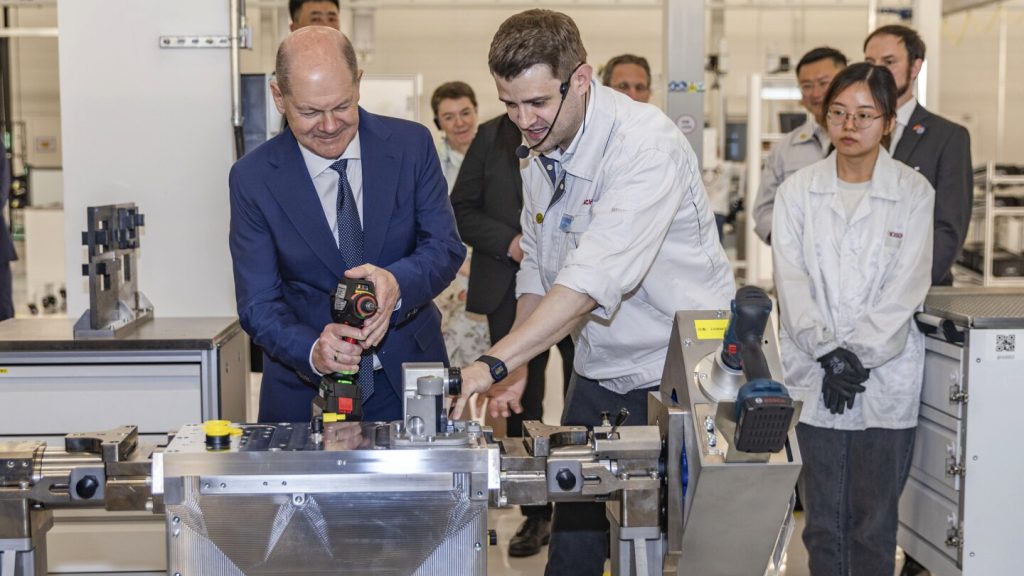German Chancellor Olaf Scholz emphasized the importance of fair competition in trade relations with China during his visit to Shanghai on Monday. Speaking to students at Tongji University, he warned against dumping and overproduction, stressing the need for a level playing field. This comes amid tensions between the EU and China over potential tariffs on Chinese-made electric vehicles and disagreements on how to handle Russia’s invasion of Ukraine.
The European Union is considering tariffs to protect its producers from cheaper Chinese electrical vehicle imports, which could flood the European market. Ahead of Scholz’s visit, the head of Germany’s auto industry association expressed opposition to such tariffs, fearing negative impacts on the European and German auto industries. However, Scholz highlighted the importance of Chinese-German trade, noting that current business with China supports a significant number of jobs in Germany.
During his visit to Chongqing, an industrial hub in China, Scholz and his delegation explored a partially German-funded company and other sites in the city, known for its production base for China’s auto and other industries. He is scheduled to meet with Chinese President Xi Jinping and Premier Li Qiang in Beijing to discuss various issues, including China’s support for Russia’s economy amid the ongoing conflict in Ukraine. Scholz has vowed to stand by Ukraine’s side, despite China’s refusal to criticize Russia’s aggression.
Scholz addressed concerns about potential Chinese invasion of Taiwan, emphasizing the importance of respecting borders and the role of international institutions like the World Trade Organization. Despite political and trade frictions, China remains Germany’s top trading partner. The two countries exchanged 254.1 billion euros in goods and services in 2023, making China Germany’s top trading partner for the eighth consecutive year. This visit marks Scholz’s second trip to China since becoming chancellor, demonstrating the significance of the relationship between the two nations.
As tensions continue to simmer, Scholz’s visit to China highlights the complexities of the relationship between the two global powers. China’s refusal to condemn Russia’s actions in Ukraine and its growing economic ties with Moscow pose challenges for Germany and the broader international community. However, the strong economic ties between Germany and China underscore the importance of maintaining dialogue and finding mutually beneficial solutions. Scholz’s discussions with Chinese leaders are crucial in navigating these complex issues and fostering a more stable and cooperative relationship between the two countries.


